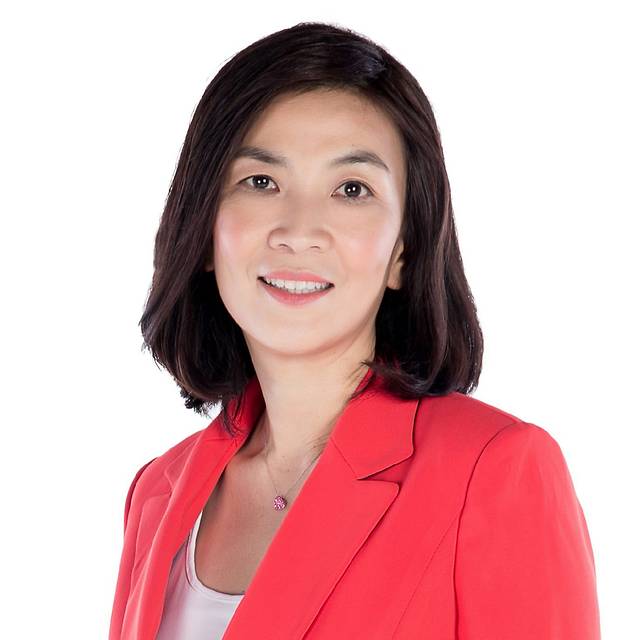As South Korea marks its first North Korean Defectors’ Day, some still struggle to adapt
The inaugural national memorial day marks the 27th anniversary of a law implemented by South Korea to protect and help defectors settle in.

A dance event held in Seoul, South Korea during the week of the inaugural North Korean Defectors' Day.

This audio is generated by an AI tool.
SEOUL: Twenty-four-year old Lee Wi Seong lived the first half his life in North Korea, and has been spending the latter half in South Korea.
At the tender age of 12, he defected from the North and made the treacherous journey to the South.
When he first arrived, everything was alien to him, from using a mobile phone to taking public transport. His struggle to adapt remains fresh in his mind till this day.
For many defectors like Mr Lee, it is a dream come true to escape the North’s repressive regime – that is, until they realise that life across the border has its own problems.
As South Korea marked its first North Korean Defectors’ Day last Sunday (Jul 14), those who managed to flee the hermit kingdom still find it a challenge to adapt to their new lives.
The new national memorial day, established by President Yoon Suk Yeol’s administration earlier this year, marks the 27th anniversary of a law implemented by South Korea to protect and help defectors settle in.
The Seoul Metropolitan Government hosted a series of events last week, aiming to raise awareness of human rights issues in North Korea and the concerns of defectors living in the South.
Activities included dancing, singing, panel discussions by defectors and an exhibition showing life in North Korea.
DIFFICULTIES SETTLING IN
For first-year high school student Ro Jin Hae, studying is much harder in the South.
The 17-year-old, her parents, sister and grandmother escaped North Korea in 2018, managing to leave before borders with China were shut due to the COVID-19 pandemic.
The easiest and safest strategy for many defectors is to cross the border into China, making it the most common escape route.
“It is difficult here because it is so competitive. I lack confidence and my grades drop. I sometimes think of my friends back in North Korea and I want to see them,” she said.
“But the good thing is that I have freedom here. I like clothes and I can wear whatever I want, and there are so many good-looking celebrities.”
Out of more than 34,000 North Korean defectors who are known to have entered the South since the Korean peninsula was divided more than seven decades ago, about 6,400 – including Jin Hae – live in the high-tech capital of Seoul.
Another defector, Seo Hak Choel, said that the events to commemorate North Korean Defectors’ Day fostered a sense of belonging among defectors like himself.
"It is a day we can be proud of ourselves and say that we are proud citizens of the Republic of Korea,” added Mr Seo, who defected more than a decade ago in 2008.
“Going forward, when we come across this day again, I hope people can take a bit more interest in us, and give support and encouragement to us defectors.”
When defectors first arrive in South Korea, they have to go to a “re-education centre” called Hanawon for three months. It helps them adjust to life in South Korea.
After completing the programme, defectors receive government benefits to help them live their new lives, including an initial subsidy, housing support and healthcare.
“FIRST ARRIVALS OF UNIFICATION”
South Korea hopes to one day achieve reunification with the North.
However, North Korean leader Kim Jong Un said in January that peaceful reconciliation would no longer be possible.
Seoul city mayor Oh Se-hoon said defectors – who are referred to as the “first arrivals of unification” – are important for the South’s vision of reunification.
“The term … implies that North Korean defectors are expected to play an important role as a bridge between the two Koreas and help transform the two Koreas into an economic powerhouse in the unified future,” Mr Oh added.
“The idea is that they have arrived ahead of the actual unification and can pave the way for a faster and more successful unification process.”
Still, defectors like Mr Lee said they continue finding it difficult to get used to life in the South.
Many newcomers struggle with simple tasks like taking the bus, paying their bills or buying groceries.
“The wounds that occurred in the process, the pain of leaving my family in my hometown, the anxiety and pressure to start from the basics in a country where no one (I knew) is there – I can say that those are the difficulties of adaptation because I live alone without any parents,” Mr Lee added.



















